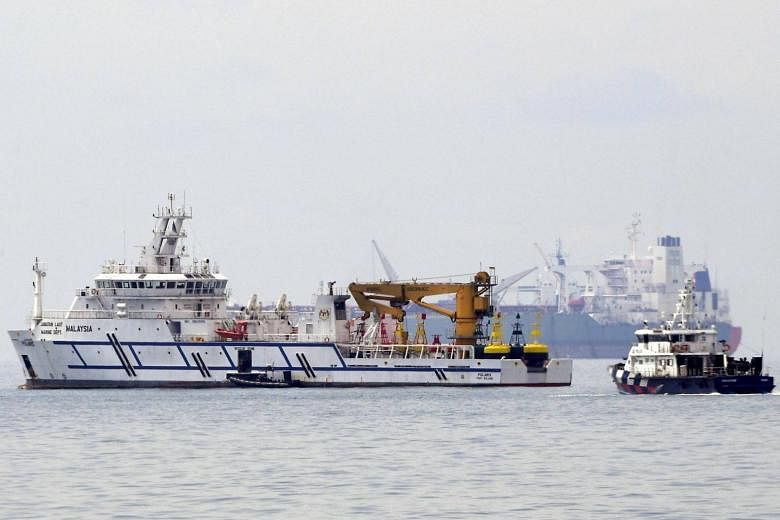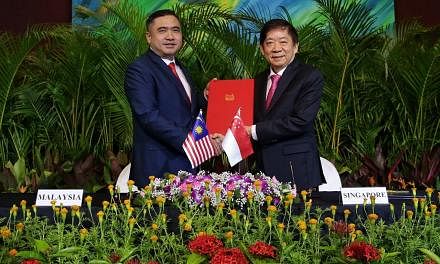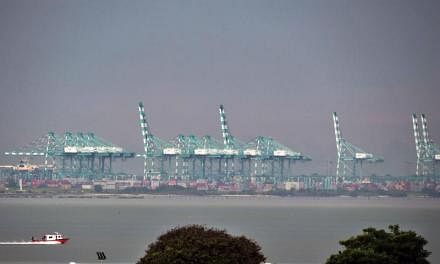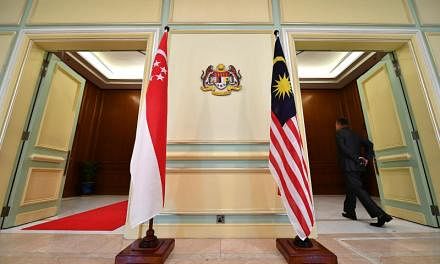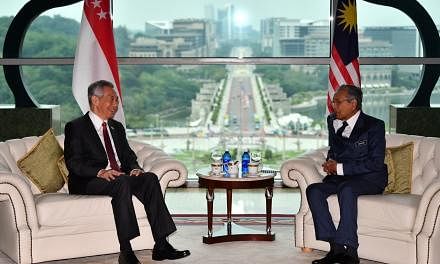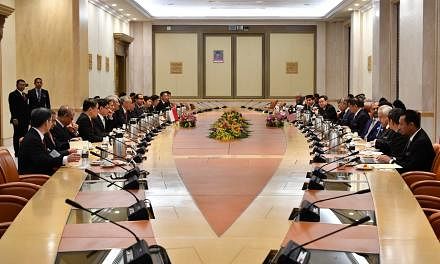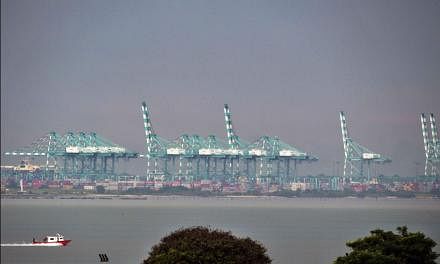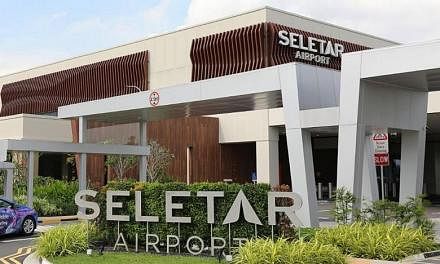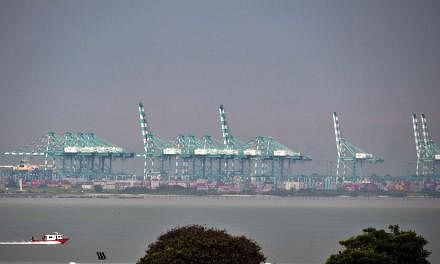Singapore is taking steps to ensure that no country can unilaterally initiate third-party arbitration or adjudication on maritime boundary disputes against the Republic.
Likewise, Singapore has committed itself to not starting such proceedings against any other party on its own.
Singapore has informed Malaysia that it has filed a declaration under Article 298(1)(a) of the United Nations Convention on the Law of the Sea (Unclos) as it hopes to resolve such issues through talks.
"Singapore believes that maritime boundary delimitation disputes are best resolved through negotiations, in order to reach an amicable settlement acceptable to all of the parties," said a spokesman for the Ministry of Foreign Affairs.
"However, if this cannot be achieved, Singapore is prepared to settle such a dispute by recourse to an appropriate international third-party dispute settlement procedure, on terms mutually agreed to by the parties."
This would include the specific issues to be decided.
Asked why Singapore prefers to take the negotiation route first, the MFA spokesman said: "Settling maritime boundaries through negotiations allows the parties to reach an outcome which is acceptable to them in the long term."
The declaration was lodged with the United Nations in New York, and it comes after both Singapore and Malaysia have agreed to meet next month to resolve a dispute regarding Singapore's territorial waters off Tuas. The neighbours signed Unclos in 1982.
The MFA spokesman also said: "Should a dispute arise that cannot be resolved through negotiations, Singapore will work with the other States Parties to agree on the choice of forum and the specific issues to be decided, in order that the matter can be submitted to arbitration or adjudication. This is preferable to one party taking another unilaterally to arbitration or adjudication without prior mutual agreement on these key issues."
The spokesman noted that many countries that have signed Unclos, such as France, Canada, Italy, Spain, Australia and Thailand, have made similar declarations.
International law experts told The Straits Times that making such a declaration helps Singapore avoid being taken by surprise should a unilateral claim be lodged against it.
The latest dispute began on Oct 25, when Kuala Lumpur unilaterally gazetted extended port limits for Johor Baru port, which encroached on the Republic's territorial waters. While a section of those waters has yet to be delimited, Singapore agencies have been patrolling them for decades.
Singapore has responded by extending its own port limits, and insisting that Malaysia withdraw its government vessels and return to the pre-Oct 25 status quo, without prejudice to its claims.
Kuala Lumpur has said it cannot do so, but is committed to de-escalate the situation.
Singapore has said it welcomed Malaysia's moves to defuse tensions, and officials from both sides are expected to meet in the second week of next month to discuss the port limits issue.
The MFA spokesman said: "Singapore hopes that by engaging each other, the two governments will reach a swift and amicable resolution, in accordance with international law."
The spokesman added: "Singapore will continue to uphold international law and remains committed to the peaceful settlement of disputes in accordance with international law."
SEE TOP OF THE NEWS
